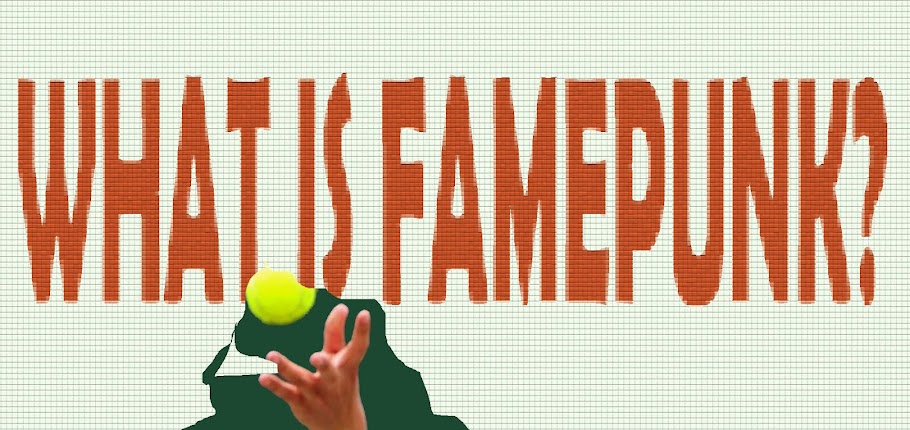It was billed as a safety measure in 1996 when professional tennis began replacing net cord judges and their fingertips (and their proneness to getting beaned by errant shots) with digital sensors. The electronic line call system used during every match at this year's US Open had a solid trial run as an anti-COVID technology. At first, since a pre-recorded human cry of “Out!” is triggered when a ball goes wide or long, it’s possible to overlook what’s missing: an entire profession. Line judging sparks a decisive turn in the final match climax of FAMEPUNK: US Open 1987 which could never happen now, twenty-five years after those fictional events.
The men and women who crouched and hunkered down and peered and saw, with notable accuracy, where the close balls fell were intriguing characters on the tennis courts in Queens. That they drew pay was a known fact. Not all were local, many flew in. Some had been unsuccessful players. From finding chances to preside at the smallest events they’d climbed a ranking board to reach the pinnacle, working these two weeks of August, outdoors, on their feet. The great hard courts look bare without them: factory floors emptied, mopped and made hygienic for the robot replacements’ sake. Touted as “cleaner”for players, viewers and sponsors, one upshot sees dozens of still-indispensable ball boys and balls girls thrown into higher relief. The line judges—their absence makes clear—had interposed a layer of responsible and adult presence between a sexually omnivorous world viewership and the ball kids’ flashing knees; oversized uniforms and all, child labor stays, adults go redundant, and the pedo class delights.
Chair umpires are still out there as well. As if to compensate for the loss of opportunities to overrule a line judge call, this current showboating generation finds ways to keep the cameras on itself, and in its meager celebrity might be allowed to age in place. Its successors are bound to be artificial: for chair umpires are only line judges who rose to the top and now sit up high, after years and years of being bent at the waist at the back of the court, crouching, peering, barking calls, enduring abusive tantrums. With the US Open off the table, who would persevere? A dry pipeline awaits.
Electronic line-calling also means the end of disputed calls--and with them an entire discourse, no less a part of a pro player’s “tennis vocabulary” than a slice or a grip. When every call is correct, there’s no space for expressing disagreement, disbelief, outrage; there's no one there to bitch at; there's no more buying time with a strategic sure-to-fail challenge. Countless acres of on-court drama and human engagement have been eradicated before they could happen.



